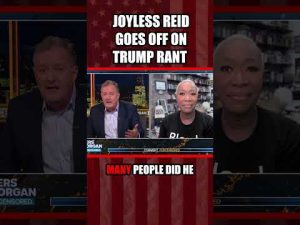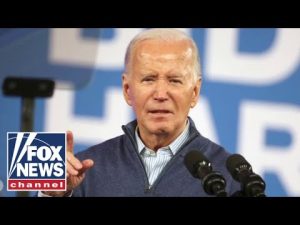In yet another twist in the convoluted narrative of the 2016 election, recent document revelations serve up a helping of intrigue that may have even the most loyal political drama fans double-checking their popcorn supply. Reports suggest that the previous administration under President Obama might have been engaged in some creative storytelling of its own, casting Russia as the villain in an alleged election plot, despite having intelligence that initially assessed no such danger. You can’t make this stuff up—unless, perhaps, you’re a former president trying to maintain influence, some might joke with a sarcastic tone.
Let’s set the scene: It’s the post-election euphoria of November 2016; Donald Trump has just been elected President. As expected in any thrilling plot, there are allegations and rumors swirling, but the intelligence assessments are clear—Russia doesn’t have the mighty toolkit to hack the U.S. election results. However, fast-forward a bit and magically, this script takes a new direction. Documents show that right after an initial intelligence report that exonerated Russia was withheld, the Obama-powered political machine perhaps read from a different script at a national security meeting. If the allegations hold, one might humorously suggest they were producing their own version of a blockbuster with Russia in a starring role.
What followed seems straight out of a suspense novel’s pages. These little charades led to quite the ordeal—a long drawn-out saga that had many questioning whose show was actually running in Washington. There were Mueller investigations costing taxpayers a pretty penny, two impeachments, and many legal dramas starring President Trump and his family in roles they likely didn’t audition for. Some might say that all these theatrics were about as necessary as an umbrella in a desert.
It’s a scandal that supposedly tingled the script-writing fingers of the Obama team, and let’s face it, few could resist noting how it’s reminiscent of a past administration’s creative foray into intelligence narratives. This latest scene raises a fundamental question about trust and governance—how can the everyday American feel confident in a system when it’s sometimes feels like they’re watching a political episode plot on primetime TV?
The line between intelligence work and political theater appears to have been crossed with abandon. As accountability is now in the spotlight, critics demand what’s been long coming—a fair encore. One hopes, with a bit of sarcasm, perhaps a full ensemble of justice will be demanded, with all characters playing their roles truthfully, as the Department of Justice looks into these chilling allegations. If these allegations ring true, heads may certainly roll—not just figuratively, but as a necessary reset towards restoring some much-needed faith and integrity in our democratic institutions.







